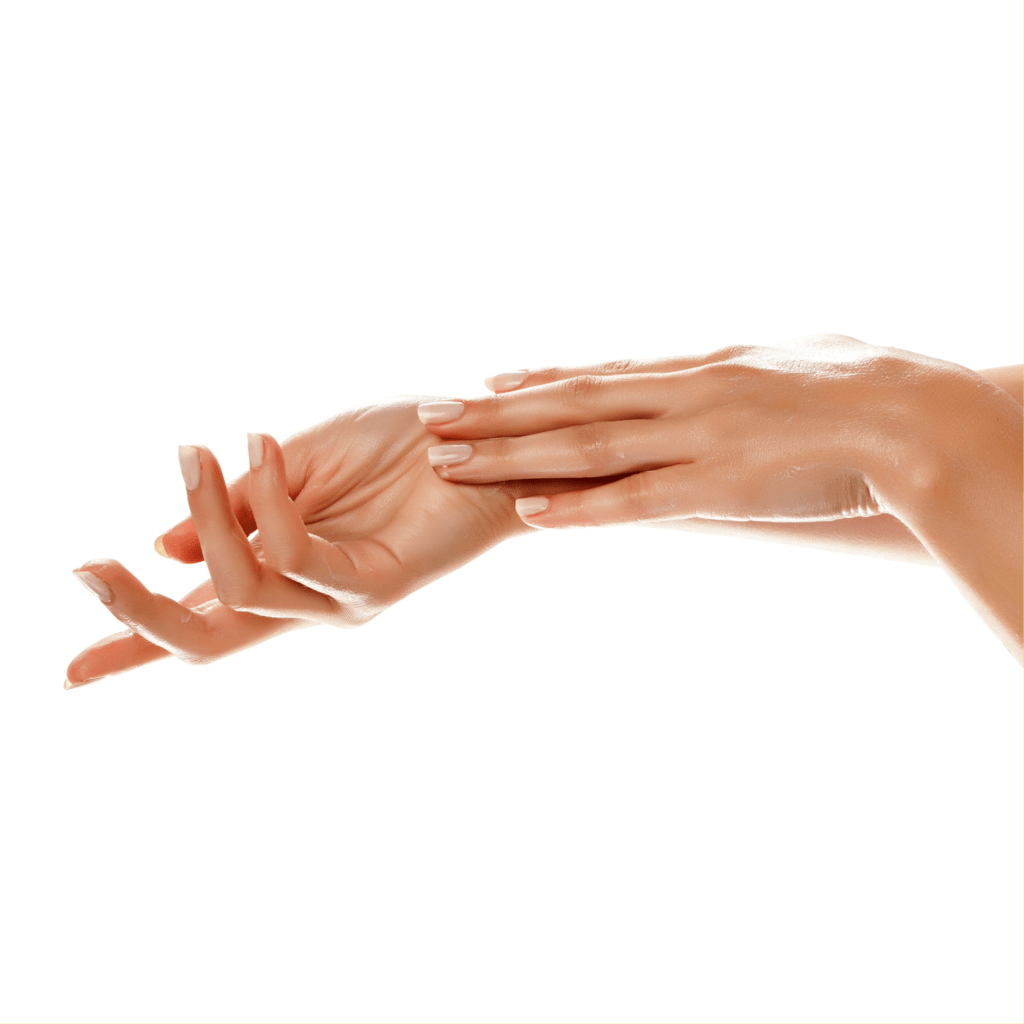Taking care of chapped or dry hands is not a given at all and yet they are the first thing others notice, our business card and their condition can convey important messages about our personal care and our general well-being.
Our hands are constantly in motion and are the most visible part of our body. They are continuously exposed to cold, wind and humidity, to sudden changes in temperature or to the excessive use of aggressive detergents. As a result, the skin becomes chapped, shows the passage of time and becomes dehydrated. Why does this happen and what can we do to fix it?
Because hands become chapped and damaged
Chapped hands represent a complex dermatological phenomenon that can be influenced by multiple biological and environmental factors. Understanding the causes allows you to take care of them. Here are the main ones:
Skin barrier dysfunction
The skin of the hands is protected by an external layer called the corneum, which acts as a barrier against harmful external agents. When this barrier is compromised, for example due to frequent washing or exposure to harsh detergents, the skin's natural moisture can be affected and cause dryness and cracking.
Loss of epidermal lipids
Epidermal lipids, such as ceramides and fatty acids, are essential for maintaining the integrity of the skin barrier. Exposure to cold and excessive use of cleansing products can cause the loss of these lipids and weaken the skin barrier. The skin of the hands thus becomes more susceptible to cracking.
Environmental factors
Low humidity levels or extreme temperatures can directly affect the condition of the skin. Dry air can contribute to hydration loss while cold temperatures can reduce blood circulation in the hands and compromise their supply of nutrients and oxygen.
Oxidative stress
Air pollution and UV rays can cause so-called oxidative stress in the skin and cause cellular damage or compromise the ability of the skin of the hands to maintain hydration and elasticity. This can manifest itself not only with the appearance of cracks but also with early wrinkles on the hands.
Nutritional Deficiencies
A diet low in essential vitamins and minerals can affect skin health. For example, a deficiency of vitamin E, an important antioxidant, can increase the skin's susceptibility to harmful external agents, while a deficiency of omega-3 fatty acids can compromise skin hydration.
Understanding the causes of chapped hands can provide a more complete and in-depth idea on how to intervene. Through one correct hydration it's a adequate protection from external aggressions, it is possible to preserve the health and beauty of the skin of the hands, keeping them soft and smooth over time.
What tips for caring for chapped hands?
As mentioned, hydration is key. You need to use one regularly moisturizing cream rich in emollient agents and apply it after washing your hands or before going to sleep to increase its effectiveness.
Always wear protective gloves during activities that expose your hands to chemicals or extreme weather conditions it helps prevent skin damage.
Choose delicate detergents and sulphate-free to avoid stripping the skin of its natural oils as well as avoiding exposing your hands to detergents for too long and rinsing them thoroughly after use are important habits.
Use a humidifier in the house to keep the air in the rooms hydrated, especially during the driest months of the year.
Make sure to drink enough during the day. Maintaining adequate hydration from the inside out can have a positive effect on the health of your skin, including your hands. Even have one balanced diet and rich in vitamins and minerals essential for skin health, such as vitamin A, vitamin C and omega-3 fatty acids is essential.
What to use for always protected hands
Apply one regularly specific cream rich in emollient agents it is already enough to prevent damage to your hands. Furthermore, it is recommended to use natural oils such asalmond oil which can be applied to the hands with a light massage to both aid absorption and improve blood circulation. Or use one very delicate scrub to remove dead cells and promote skin renewal. In this case, it is essential to avoid overly aggressive products that could worsen chapped hands.
Finally, it is often overlooked, the application of a sunscreen on hands which on the contrary is essential to protect them from damage caused by UV rays. Prolonged exposure to the sun can cause premature skin aging and increase the risk of cracks and wrinkles on the hands. Choosing a high protection sunscreen and applying it several times during the day can help keep the skin on your hands young and healthy over time.
Natural ingredients for hand care
In addition to general hand care tips, there are several natural ingredients that offer specific benefits for repair and nourish chapped skin. Among these, the propolis known for its antibacterial and anti-inflammatory properties, which when applied to the hands, helps fight any skin infections and to reduce inflammation, thus promoting the healing process of chaps.
There beeswaxi, on the other hand, is a natural emollient which creates a protective barrier on the skin, locking in moisture and preventing hydration loss.
Finally, theechinacea It has immunostimulating properties and can be used to promote the healing of wounds and skin irritations. Applying hand creams or lotions containing echinacea extract can help reduce inflammation and to promote cellular regeneration.
Integrate products containing these natural ingredients in your hand care routine it can provide additional support to repair and protect skin from cracking, helping to keep it soft, smooth and radiant.
And you, do you take care of your hands?



